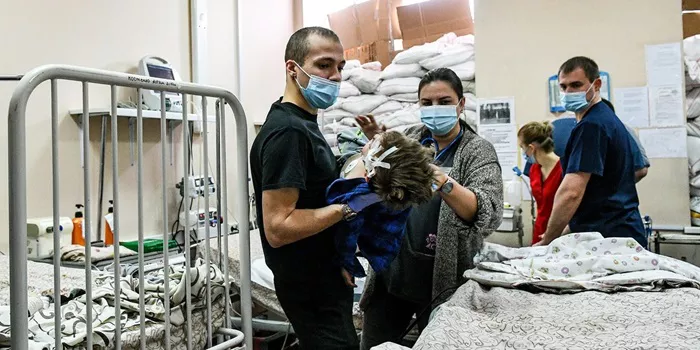The World Health Organization (WHO) has recorded 1,940 attacks on health care facilities in Ukraine since the onset of the war with Russia in February 2022. This staggering number marks the highest count of such attacks in any humanitarian emergency ever documented by the WHO.
According to the agency, 86% of these assaults have specifically targeted health care facilities, often employing heavy weaponry. The frequency of these attacks has escalated since December 2023, with incidents now occurring almost daily.
“In 2024, we are seeing a troubling rise in double-tap attacks,” stated Dr. Jarno Habicht, the WHO’s representative in Ukraine. “Civilian infrastructure is increasingly coming under fire, and we are losing colleagues—health care workers, nurses, doctors, paramedics—at an alarming rate.”
Dr. Habicht emphasized that the risks for first responders have tripled this year, with health transportation workers facing a significantly higher likelihood of harm compared to other health care personnel.
As of this year, 34 health care workers and patients have lost their lives due to these attacks, up from 24 deaths reported in 2023. Additionally, 229 individuals have been injured, surpassing the injury figures from both 2022 and 2023. The WHO reports that every fourth attack on health care in 2024 has resulted in injuries.
“We are witnessing a blatant disregard for the fundamental principles of humanitarian law,” said Dr. Emanuele Bruni, World Health Emergencies lead at the WHO Country Office in Ukraine. “The widespread attacks on Ukraine’s infrastructure have created urgent needs for electricity, water, and heating, impacting every aspect of life for the Ukrainian people, including health care providers.”
The conflict’s toll on health care infrastructure was underscored last month when Okhmatdyt Children’s Hospital in Kyiv, one of Ukraine’s most respected pediatric facilities, was damaged during attacks on five Ukrainian cities. The strike claimed the lives of at least two people, including a female physician, and injured at least seven children.
In another tragic incident in November 2022, a newborn baby was killed when a missile struck a maternity hospital in Vilniansk, Zaporizhzhia Oblast.
Communities near the frontlines have seen their access to health care severely disrupted, heightening the risk of severe illness and death among residents. The WHO reports that, on average, 200 ambulances have been damaged or destroyed each year due to shelling since the war began.
Despite these challenges, Ukrainian health authorities, supported by the WHO, have been working to address the urgent health needs across the country. To date, the WHO has delivered approximately 3,750 tons of medical supplies, including ambulances, medicines, and generators.
“Ultimately, the health care workforce of Ukraine are genuine heroes,” Dr. Habicht concluded. “Despite ongoing attacks and immense challenges, they continue to save lives.”
[inline_related_posts title=”You Might Be Interested In” title_align=”left” style=”list” number=”6″ align=”none” ids=”11245,11241,11237″ by=”categories” orderby=”rand” order=”DESC” hide_thumb=”no” thumb_right=”no” views=”no” date=”yes” grid_columns=”2″ post_type=”” tax=””]
































